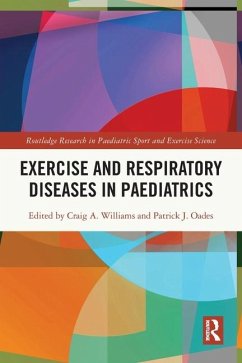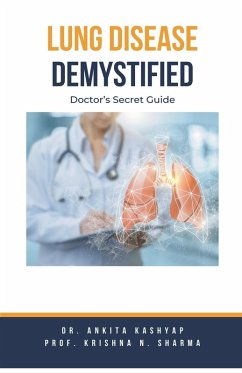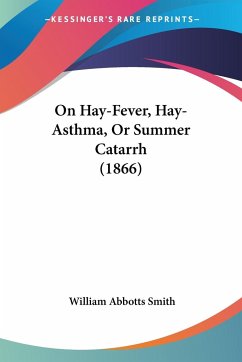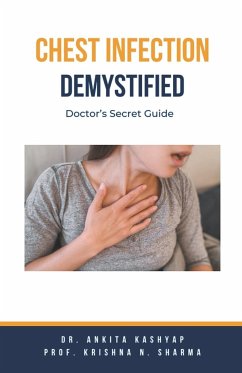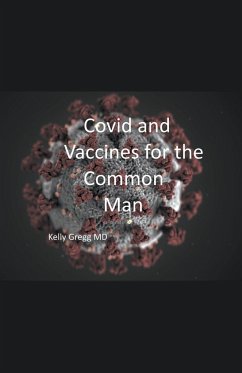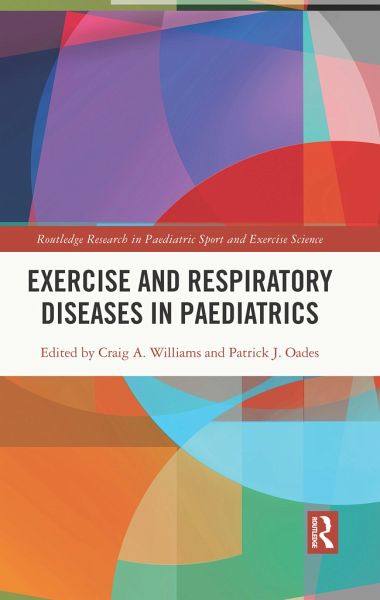
Exercise and Respiratory Diseases in Paediatrics
Versandkostenfrei!
Versandfertig in 1-2 Wochen
169,99 €
inkl. MwSt.

PAYBACK Punkte
85 °P sammeln!
It is commonly accepted that "exercise is good for children" but, considering the number of children worldwide exercising, we know comparatively little, compared to adults, about how specific mechanisms influence health and sports performance. There are considerable obstacles that challenge the progress of paediatric research, not least in relation to ethical and methodological considerations. Therefore, advances in the science and clinical application of paediatric exercise physiology, psychology and biomechanics have not reached their potential. ¿ Paediatric clinical exercise physiology has...
It is commonly accepted that "exercise is good for children" but, considering the number of children worldwide exercising, we know comparatively little, compared to adults, about how specific mechanisms influence health and sports performance. There are considerable obstacles that challenge the progress of paediatric research, not least in relation to ethical and methodological considerations. Therefore, advances in the science and clinical application of paediatric exercise physiology, psychology and biomechanics have not reached their potential. ¿ Paediatric clinical exercise physiology has application to the role of exercise in the assessment and treatment of paediatric chronic diseases, the utilization of physical activity in preventing illness and enhancing wellbeing and can enhance our understanding of how sports can be made safer and more enjoyable for our young athletes. ¿ Exercise and Respiratory Diseases in Paediatrics highlights research by various methodologies, including literature reviews, experimental research and innovations, applied to children and adolescents with respiratory diseases. Chronic conditions such as asthma, bronchiectasis (e.g., cystic fibrosis), and those associated with prematurity and medical complexity are worldwide health problems for young people and although management includes pharmaceutical medications, physiotherapy, nutritional and psychological support, exercise has a role in optimising multidisciplinary care. There has been unprecedented acceleration in new technologies and methodologies that promise to facilitate paediatric research and these are explained and discussed as future research directions. ¿ This is reading for post graduate students, researchers, academics and policy makers within the field of paediatric healthcare, physical activity, physiology and the related disciplines.





